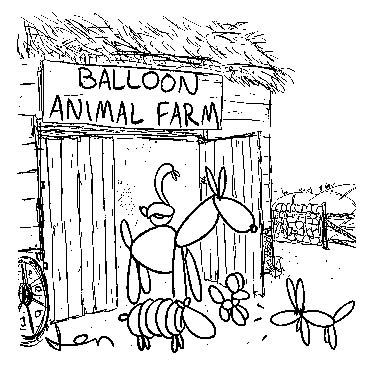The sublime Outnumbered (BBC1, Thursday) is back. It’s customary to compare it favourably to The Life of Riley, another BBC family sitcom, from this week shown on the previous night. I have declared an interest before: the onlie begetter of Riley is Georgia Pritchett, who years ago nannied for us. So I’m disposed to like it. And it’s wrong to write it off as just another bland comedy with sassy kids and put-upon parents. It’s about life as lived in the real modern world, with teenagers so old beyond their years that they’re not even rude to their parents, families reduced to communicating through post-it notes, and mean-spirited, bottom-line-obsessed employers. And there are well-pointed gags. The faultless au pair who made it possible for Maddy (Caroline Quentin) to go to work has moved to another family. Maddy is furious with the new Mum, a neighbour, who pleads that she didn’t know where the girl came from. ‘She said they ignored everything she did, and they lived like animals.’
‘So you must have known that was us!’ she says, face crumpling with despair.
In Outnumbered, the adults are the straight men to the children, who reflect the adult world back to them. Ben, the little boy: ‘In some pictures it looks as if Gordon Brown has two eyes — do they paint the other one on?’ Karen, the little girl who steals the show every week, is explaining why you can’t be prejudiced against anyone: ‘gay people, ginger people, people who come from Liverpool’. Her voice tails off like any child trying to recall all the things she has to recall. Now and again the parents are allowed a gag line: passing Parliament, Karen asks how the people decide what laws to make. Dad: ‘They read the Daily Mail.’
It’s sad to see an enjoyable Sunday-night slump-in-front-of-the-box like Jonathan Creek (BBC 1, Sunday) jump the shark. This is, apparently, the technical term for when a programme heaves overboard what first made it successful. Bobby waking up in the shower in Dallas was a prime example. Even a programme that deals with the impossible needs credibility — in fact, it needs more credibility than most. Someone must have thought, right, we’ve had a lot of success with this Creek thing in which an attractively diffident magician solves in one hour an impossible murder mystery with the help of an attractive but flakey young woman. So, we’ll make it 90 minutes long and have a plot that is so ludicrous, with more loose ends dangling than a tramp’s pullover, that nobody will be able to suspend their disbelief. Then they’ll wonder why it didn’t work — and why it will put viewers off the whole series if it ever comes back.
The show was clearly suffering from Poliakoff Syndrome, by which the writer (in this case, David Renwick) is also the director. This is usually fatal. Dr Johnson told us to strike out the lines we like best. In television that’s the director’s job. So when they made it, there was no one to say, ‘Look, Dave, why did you leave them in the blocked basement without telling us how they got out? Are we supposed to believe that one woman could hurl another grown woman out of a window so that she landed exactly on the spiked railings, and that they could pull her off like a shish kebab from a skewer then hide the corpse behind a gate? What’s this ancient crime from 20 years ago you didn’t tell us about until the very end? And do you seriously imagine we’ll buy the notion that you could pump a fob watch full of lethal gas, then have a singer hit the right note to crack the glass at the moment the victim is looking at the time?’ And the ending was hopeless. Nothing needs more to be rooted in reality than fantasy.
I wonder why The Private Life of a Masterpiece (BBC2) is just an occasional treat? It used to be a weekly series. Three months ago we had The Private Life of a Christmas Masterpiece, and this week the Easter version, which was about van der Weyden’s ‘The Descent from the Cross’, thought in its day to be the finest painting in the world. These programmes, made by Fulmar, are everything expository television should be. They are informative without being condescending, they include experts who know what they are talking about rather than celebrities who don’t, they tell you the social, artistic and political context of the works, and they really make you, as a layman, relish paintings that in a gallery you might favour with a short and possibly bemused look. Only television can do this. And pretty cheap to make, I’d guess.





Comments